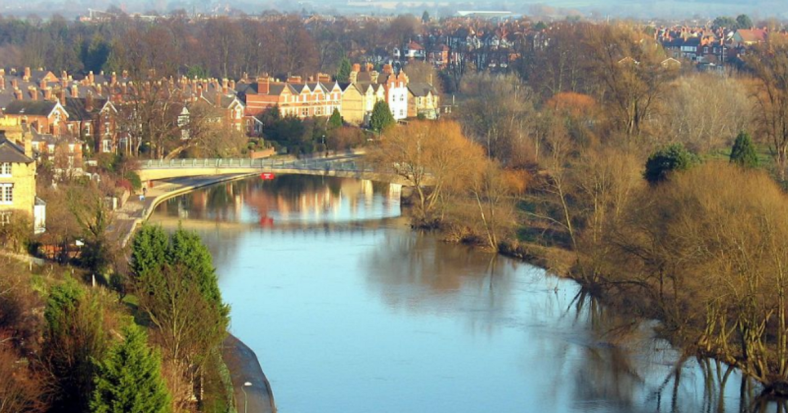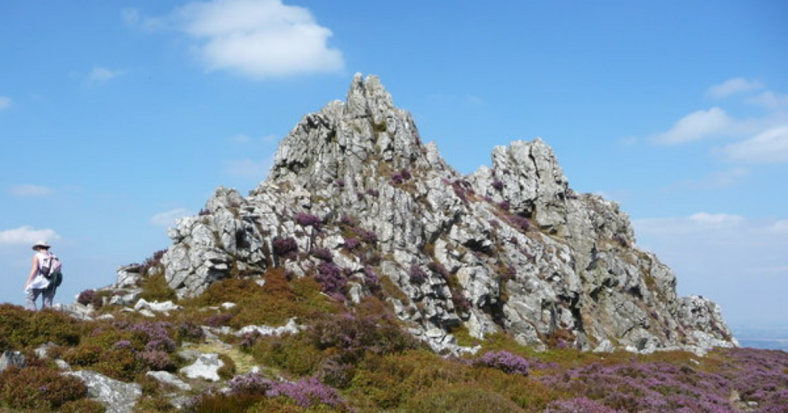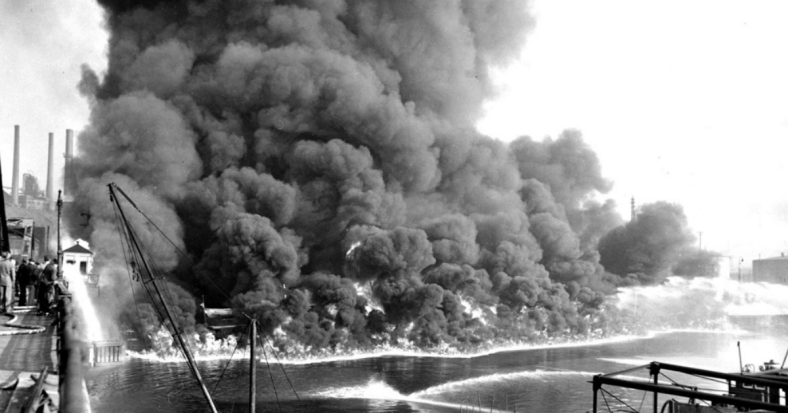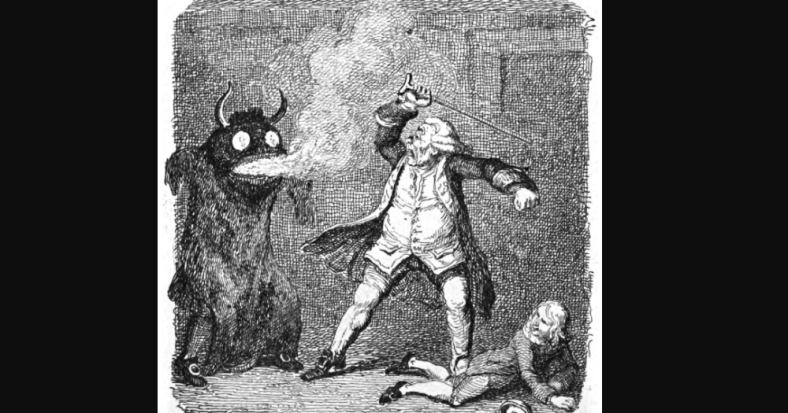This Week’s Prompt: 80. Shapeless living thing forming nucleus of ancient building.
The Prior Research: There Is Nought But Chaos
The valley of Olim sits along the bubbling river Syper. The river runs down from a mountain, littered with cracked stones, and across a number of misty hills, before arriving through the path of it’s ancestor—the glacier Euroni, who’s ponderous mass filled the valley—and reaching out into the sea of the dead. The river in truth carries through many more places, but those are not of important to this story. The valley of Olim is nurtured by the river, and like many such valleys and rivers, a number of people have come to live on its shores.
As a young man, I traveled to Olim when it’s walls were still covered in ever thickening layers of ivory. I had come to study architecture—the carvings and burrows of the people where fascinating to me, their carefully made stone work wrapping around the great trees and rising from the marshy banks. In part, I wanted to understand how they had built such stable lives on unsure footing. More accurately, I wished to understand the great temple that sat at the center of the city, astride the river.
The temple was a bulbous shape, a great dome atop with a blossoming flower of many colored jades and metals. The temple without is remarkable, yes. Its walls resemble tree trunks, with roots and branches for soaring rafters and buttresses. Along the roof is a great garden, surrounding the dome in a halo of life. Pumps run river water around it, four waterfalls careening back off the temple top into the sea.

To the architectural mind, the most frustrating matter was the interior. The great temple is a single wheel shaped structure, with an interior column running up the middle. This column contains a stair well—and if one enters the stair well, it leads upwards, without branching or changing. Yes, I’m sure your amazed that the most simple functions of a stair way still operate. Nonetheless, the reverse is not true—go down the stairwell and you will find yourself in another room from where you started.
This fact was reported to me before I came to Olim. I considered it at first to be a clever trick of the column. Surely, it rotated or shifted the stairs around while the visitors were not looking. This would explain how the priests and attendants knew how to move about the tower—there was some clockwork gears and contraptions moving the stairs. It might shift the walls slightly, so that their length hid the illusion.
I decided, on my first day—well, second. My first day I spent recovering in the house of my host, as something disagreeable had come into the water I had. Regardless, my first real day I went to the temple. I saw the great murals, the offerings left behind. Straightening my cuffs, I tried my best to avoid attention. The smoke that rose out of the altars helped.
It was an unpleasant experience. The air was thick with mist and incense, and even in the relatively cool and isolated stair case, it felt like a sauna. I wondered if this was a part of the illusion of the temple. To get visitors in such a confused state that its operations would go entirely unnoticed. I went up the stairs as best I could—the walls were decorated here with total abstractions. Pyramids seemed to gradually come into view, and fractal squares and circles continued to blossom all the way up the corkscrew—until I arrived at the top. I stood and stared over the winding river and forests. The wind was a relief as I stared sat in the sacred gardens. I breathed deep, to clear my mind.
And then set back down again—counting my steps, and carefully watching the walls for shifts both subtle and vulgar. And I walked down, feeling each step, until at last I stopped—before an eyeless statue of Joni, the Watcher of Paradises Gate. I frowned, and turned about. There were little statues lining the hall. There were priests intoning prayers drawn from a bowl. It was certainly a shrine. I turned to the door—the stairs lead down again, but none went back up to the roof. I continued down, and found another shrine—to Delia the Traveler—and then another, and after the fourth I reached the bottom again.

After withdrawing to consider all the events, I concluded that the first room had occluded my vision. I would need a more definite way of navigating next time. So I examined my cartographic and measuring supplies, and removed a set of nodes—small pyramids, with compass orienting tips. I had about three dozen to leave carefully on the stairs. Then I’d use a compass to navigate back. That should help against any tricks of the temple priests.
The priests did grin when I returned and asked if I needed anything—my face must have given away my determination, if not my frustration. I waved them off for now, and set up to the gardens. Every ten steps, I let one of the pyramids fall—pushed against the wall, to prevent them from being noticed and taken. I consulted my compass as I walked up, to see what might have changed behind me—and the compass shifted somewhat as I went. But it went in a spiral, like the stairs. So that was expected. At last I emerged onto the beauty of the garden from the heated tunnel below.
I breathed, stretched, and immediately went back down into the depths. Like clockwork, I found the first pyramid. My compass lead me to the second—and then the twelfth. I frowned and examined the small pyramid again. Perhaps, I reckoned, I had missed the early ones. Heading back up, my eyes caught a waver in the air as the stones shimmered. I found the fourth, the fifth, the third…and so on. I paced up and down the stairs, finding my pyramids now at the entrances of shrines I did not know or alcoves and libraries unfamiliar. It took the better part of an hour, by my count, to locate all thirty and arrive back at the bottom.
Perhaps…perhaps what happened next was rash. Honestly, it was a dire mood that came over me. It wasn’t the sort of rash frustration that one fumes about and is free of—it was a driving force that possessed my best faculties. I turned and left, wordless as I examined my own notes. There was something amiss, I reasoned, with a stairway like that. The core of this building—no, it was built in correctly. It was built wrong and if I could understand how it was built so wrong, I could improve on it.
I couldn’t hope to do it during the light of day. The priests knew many strange prayers, but an architects tools were likely to draw attention. And surely, surely, they would refuse to allow their ruse to be undone. More importantly, my work was likely to involve a more destructive habit then they were used to. I had to tear through that column, see their clockwork mechanisms. I had to see how they did this. What arcane secrets powered this nonsense miracle. And that might be objected to.
So it was that in the dark of the night, in a heavy jacket and with a sledgehammer I slunk in. I looked the part of a lone iconoclast. But my goal was not the statues, the paintings, the other trappings and decorations. The jewels of the temple I did not take aim at. No, with chisel and hammer, I went for its holy heart.
When a priest asked my purpose—the poor neophyte, new to his orders, but perhaps guessing my goal—I told him I was here to carve a new shrine into the alcove. Hence my tools. Yes, it was an unusual request, but the god in question could only be honored in the night. The sunlight would ruin my tools, I explained. It would make them no longer capable of working with the sacred. And so I went up the stairs without further objection.
Once I was sure I was out of earshot, I struck hard and fast at the central stone. I struck that cured fractal eye—exactly in it’s pulsing blue pupil. It cracked. I heard a commoiton down the stairs—the neophyte had reported the strange sculptor no doubt. None the less, I needed to know what was at work here. What diabolical sorcery had they employed.
The cracks formed quickly—the stone was thinner than I expected. Another whack and another. On the tenth, the stone chipped. I had made, with careful precision, a triangle in the wall. And now, as I hear steps rushing up to stop me, I pull it out. Crowbar in hand, I gazed in.
Into a shimmer skin, a membrane that is all the colors of the rainbow. It appears like a tree’s bark one second, a cows hide the next. I see the glimmering eyes of a spider, then a drifting flock of birds. I see the steps whirling in other parts of it—space itself digested and shaped by a vast pulsing thing. I saw worlds and shapes floating in it’s jetsam. For a moment, I saw all the million shapes of life.

I saw and I could not understand.
And in the next moment, it stopped. Petrified, bubbling stone was all that was left. Gas sighed out, and screams broke out. There walls cracked as stairs collapsed from unseen room. I saw shrines buried in it’s skin trapped forever. As the priests laid hands on me, I understood that the temple had died that day. And that something was lost.
A dozen or so parishioners died that night. Or we assume they are dead—the rooms they were in are no longer accessible. A hundred or more shrines are stuck, unable to be found anymore. Others are being excavated as best they can from the interior. I have been banished from the valley—and from three other towns, once my reputation found its way out of my wine stained lips. The ivy does not grow in Olim. The woods have begun to recede. Every year, they say, the river grows more gray.
This story was fun to write, if a bit short. I drew more from the Taoist texts then the great beast stories–I found the story of Hundun espeically interesting to approach. All in all, while I could have stretched this story some, I think I’ve captured the main thrust here. Did you have a different approach to the prompt?
Next week, come and gaze into dreaming stones and inspiring muses! …not as bad as last time I promise, these muses are kinder.
If you’d like to support the Society, receive more stories or research, or are feeling generous, please check out our Patreon here.




















